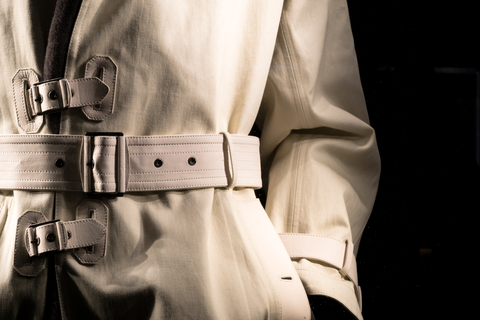Top 10 Rules About the CIA Every Spy Novel Writer Must Know
Stories of men and women operating in the shadows from each corner of the world, while the rest of us mere mortals go on about our lives, have captured our imagination and helped build a multi-billion book and movie industry. Year after year, the book market is flooded with spy stories of heroes who risk their lives to protect the homeland, while performing gravity defying and mind-bending tricks to outsmart the enemy. And we can’t talk about the spy genre without an honorable mention of one of the most famous spies of all time—Bond, James Bond, 007, a license to kill. Another James Bond movie is dropping later this year, in case you were wondering.
And due to the steady stream of movies and books dedicated to the espionage craft, the CIA has created a cult following among the die-hard fans with salacious appetites demanding more books from writers with complicated story plots, twists and daring characters.
But a word to the wise for those writers who want to dive into the spy genre. It’s complicated, mysterious, and it has rules.
- When writing about the CIA, this is perhaps the most important rule a writer should remember. The CIA officers can’t spy on U.S. citizens on American soil. The FBI is the domestic spy agency. The CIA should and must operate on foreign soil.
- There are other agencies within the intelligence community who are spies too, but the CIA owns the human intelligence, meaning they are best at recruiting assets and running agents.
- There is a major difference between a CIA officer and an agent. A CIA officer collects intel, while an agent has been recruited by an officer to collect and provide intel to their CIA handlers.
- The DCI (director of the CIA) reports to the Director of National Intelligence (DNI), which is appointed by the President of the United States and confirmed by the Senate.
- In the old CIA building in the main lobby on the right wall there is the Wall of Honor. It’s adorned with stars carved in the white marble as a tribute to those officers who’ve lost their lives in the line of duty. Thirty-nine of those stars are left without a name because that person’s identity is still highly classified.
- In the same lobby across from that wall, a quote is engraved to serve as a reminder to everyone who walks through the agency’s door and what they stand for: “And ye shall know the truth and the truth shall make ye free…” John 8:32.
- In the courtyard that connects the old building to the new building there is a sculpture called the Kryptos sculpture designed by the American Artist Jim Sanborn. It’s a cryptographic puzzle that contains a message, which by the way, has not been deciphered yet.
- The CIA has its own paramilitary group and these officers operate under some of the harshest conditions. A paramilitary officer is highly skilled, with years of experience in military combat, and speaks foreign languages. They are trained at the CST academy (Clandestine Service Trainee) where they are taught the art of being a spy.
- If a foreign government captures a CIA officer and expels them from their country publicly, the officer’s identity is compromised and that officer becomes a persona non grata or PNG, which practically means, the officer won’t be able to operate in the field again. Their identity has been burned.
- It’s true that the core responsibility of the CIA is to collect intel. The spy agency has another responsibility that gets overlooked in spy books. Every day CIA officers draft a book called the President’s Daily Brief or PDB—a document so highly classified that it contains our country’s top intel briefings and missions, written for the President’s eyes only and a few of his national advisers. The book is usually accompanied by a CIA Briefer from the CIA HQ to the White House who awaits questions from the President. When the commander-in-chief is done with the book, the briefer returns it to the CIA HQ where it’s archived. It’s a fascinating document.
Can you imagine what would happen if a foreign country was able to sneak a spy into this area and they were granted access to the PDB?
I can…and this plot twist might find itself in one of my upcoming spy novels.
About the author:
Jolene Grace grew up in Eastern Europe and has witnessed firsthand the region’s geopolitical makeover as well as the economical struggles of poverty faced by all, which is a prevalent theme in her writing.
She holds a Bachelor’s Degree in Journalism and Broadcasting, which fueled her interest in politics. Jolene interned for CBS Evening News, working on the foreign desk at night time and has covered many wars, including the American/Iraq War.
A member of Mystery Writers of America and Sisters in Crime, Jolene makes her home in Massachusetts with her husband and children, where she writes full-time. Going Dark (BHC Press) is her debut novel in her Gabriel Jets spy series.

